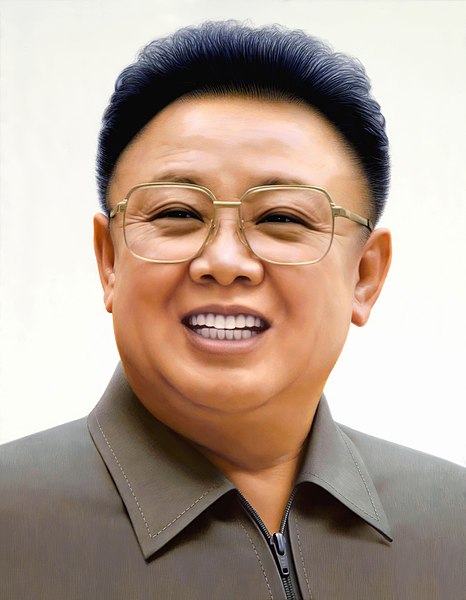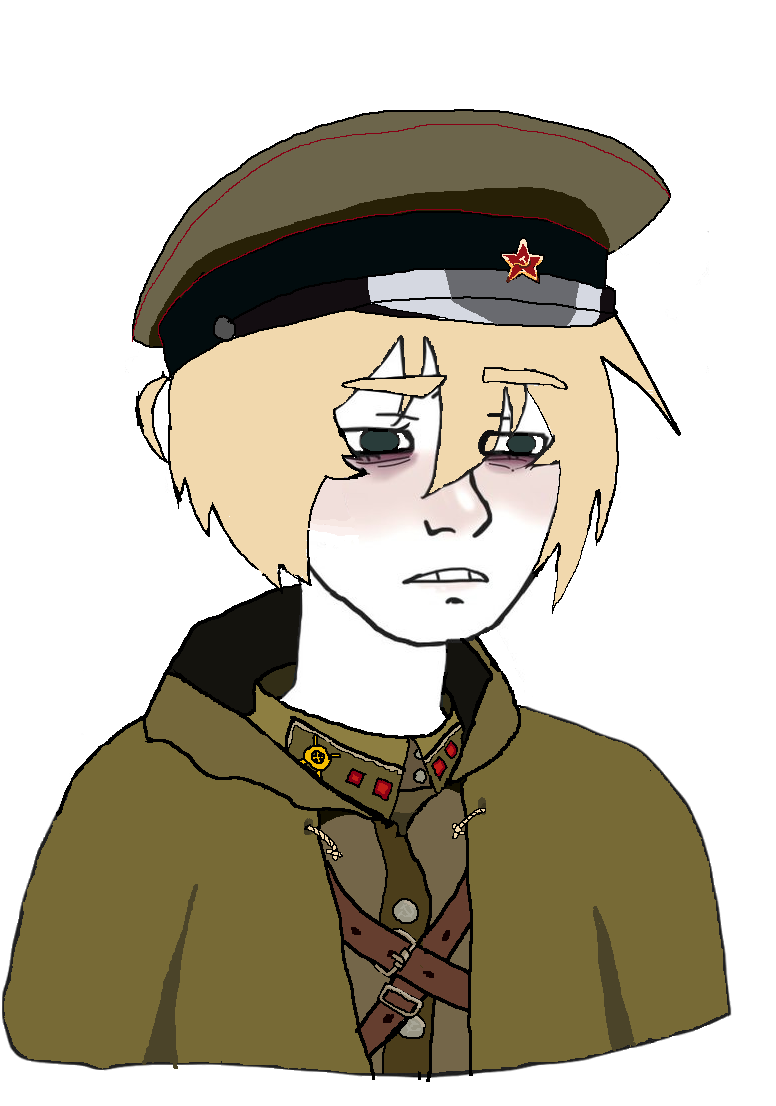The critique is that classical Marxism-Leninism treats humanity as object, not as subject. That is, there is in humanity an interior principle from which the social movement ultimately derives; this principle, described as “independence” or “Chajusong” is socially-created, and while conditioned by material forces, is not wholly reducible to them. Thus man is the subject of history, in that history is created – originated – by the masses; Marxism-Leninism fails to recognize this, and instead treats human progress solely as the result or “object” of external economic and social forces. In other words, Marxism-Leninism mistakes the conditions of the thing for the thing itself.
The creators of Marxism set as their main task overcoming the idealistic and metaphysical view of social history which served to justify the reactionary exploiting system and applying the materialistic and dialectical principles to the field of social history; they clarified that society, like nature, exists objectively and it changes and develops according according to the general law governing the material world. They however failed to elucidate the essential differences between the movement of nature and social movement and the law inherent in the socio-historical movement. The new era implies that the most important requirement for making the view of social history of the working class perfect, is to clarify the law peculiar to the social-historical movement whose motive force is the working masses. This historic task was fulfilled with credit by the Juche philosophy.
The Juche philosophy, by applying to social history the philosophical principle that man is the master of everything and decides everything, gave a fresh light to the principle that the masses are the motive force of history, and the socio-historical movement is an independent, creative, and conscious movement of the masses.
– Kim Jong-Il, On Some Problems of the Ideological Foundation of Socialism, 1990
Though the Juche Idea does not replace Marxism-Leninism, it is nevertheless distinct:
In explaining and propagating the Juche philosophy we do not need to convince people that the Juche philosophy is a new development of Marxist materialist dialectics. It is true that our Party has not taken a dogmatic approach to Marxist materialistic dialectics but analyzed it from the point of view of Juche and has given new explanations to a number of problems. However, some development of materialism and dialectics dose not constitute the basic content of the Juche philosophy.
The Juche philosophy is an original philosophy which has been evolved in systematized with its own principles. The historic contribution made by the Juche philosophy to the development of philosophical thoughts lies not in its advancement of Marxist materialistic dialectics, but in its clarification of new philosophical principles centered on man.
Kim Jong-Il, “The Juche Idea is an Original Revolutionary Philosophy,” 1996
The necessity of “going beyond” Marxism-Leninism does not arise because the conclusions of Marxism-Leninism regarding dialectical and historical materialism are somehow erroneous. Rather, the necessity arises because “pure” Marxism-Leninism, though able to analyze contradictions and successfully foment revolution, is unequal to the task of actually building a communist society; “we do not see it as a perfect communist revolutionary theory of the working class.” (“On Some Problems of the Ideological Foundation of Socialism.”) Juche sits on Marxism-Leninism as on a foundation or base; or perhaps better, it sublates Marxism-Leninism in a new synthesis, in which idealism and materialism no longer contradict each other.
Man is neither a purely spiritual being nor a simple biological being. Man is a social being who lives and acts in social relationships. The fact that man is a social being is the major quality which distinguishes him from other biological beings.
Kim Jong-Il, “Socialism is a Science,” 1992
Failure to recognize that the masses are the subject rather than the object of history, says Kim, ultimately leads to the restoration of capital:
Because he is independent, creative and conscious, man is the most precious and powerful being. Man is the only master and remaker of the world. Nothing in the world is more precious or powerful than man.
However, bourgeois reactionaries do not regard man as the most precious being, but as a means for material production and an insignificant being who possesses only labour power, which is bought and sold as a commodity. They also consider him a powerless being dominated by money, not as a powerful being who shapes his destiny through his own efforts. The betrayers of socialism are restoring capitalism and eliminating all the popular policies established by socialism. They regard unemployment and poverty as means for pressurizing people, in order to force them to compete, and in order to increase labour intensity. They grovel at the feet of imperialists, expecting “aid” and “cooperation” from Western capitalist countries, instead of believing in the strength of their people. All this is due to their reactionary bourgeois view of man.
– Ibid
This is real dialectical study going on rn
Thanks for this explanation.
Can I ask some questions? I can perhaps see a difference in emphasis, but this not far off what I would have thought MLs would have accepted. But there may be some confusions in my thinking, here.
I don’t have quotes to hand. But I thought that one of the motivating factors of Marxists was to overcome alienation. To do so, Marxists would try to implement socialism/communism and re-join human objectivity and subjectivity—which are separated under capitalism. Does Juche instead argue that we instead need to combat alienation by focusing on human subjectivity (rather than it’s synthesis with objectivity)?
I also thought a central principle was that humans make history. This could mean two things. The first is the one that you described (which I think I agree with), that humans are the subject. Can humans be the subject and the object?
The second needs the context of ‘the history of all hitherto society is the history of class struggle’. Similar to Fukuyama’s idea, but in a Marxist sense, this could be read as: when there are no longer any classes, there will be no more history. I’ve always struggled with that notion. Is this where it’s necessary to say: we only reach that conclusion by treating humans as object; and we can reach a better conclusion by treating humans as subject?
In David Harvey’s companion to Capital volume I he gets ahead of the common argument that Marx completely rejects the idea (in favour of materialism). Harvey emphasises something Marx writes, about bees and architects. Although the be creates something impressive and beautiful, the bee must be distinguished from the architect, who does something similar. The architect, unlike the bee, begins with an idea, imagining first what they want to draw and then build.
In this framing, does Marx suggest that idealism and materialism are contradictory? I thought it was just that the material world comes first. The architect may have an idea, but this is limited by the material world. Or does Juche aim to make idealism equal to materialism. That seems like quite a departure from Marxism-Leninism, too much of a departure to say that Juche uses ML as a base. What am I misunderstanding here?
It seems like a part of Juche is a critique of the USSR. Maybe the issue is that Juche criticises what ML became towards the middle and end of the USSR, rather than what ML looks like in the works of Marx, Engels, Lenin (and Stalin? I’m unsure what Juxche says about Stalin)? Am I on the right lines?
I think the way to conceive of juche as a critique is to conceive of it as exposing a missing element, not as contradicting MLism
How can I nominate you to lead the Korean Friendship Association? If you aren’t involved with them , you should be.
Thanks, am flattered! In absolute fairness though, the people in charge have a much more thorough knowledge of Juche than I do. I’m just a student, those people are scholars.
I think Juche is just ML adapted to the DPRK’s culture and economic isolation, do no, not as far as I’m aware
From my understanding, what is referred to as “Kimilsungism-Kimjongilism” in English/translated texts more accurately represents Marxism-Leninism with Korean charscteristics regarding the DPRK’s political economy, whereas Juche represents moreso the (dpr)Korean worldview on a sociocultural level. The Juche idea is the cultural revolution to Marxism-Leninism’s economic and political revolution.
If it is, it should goes like that: “They died. Bad of them.”





